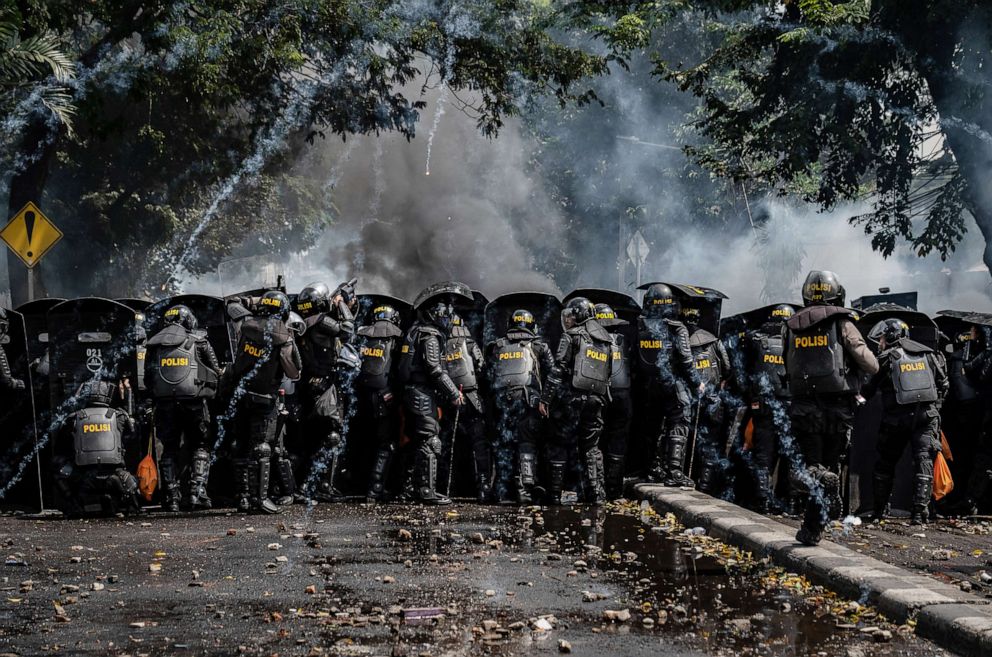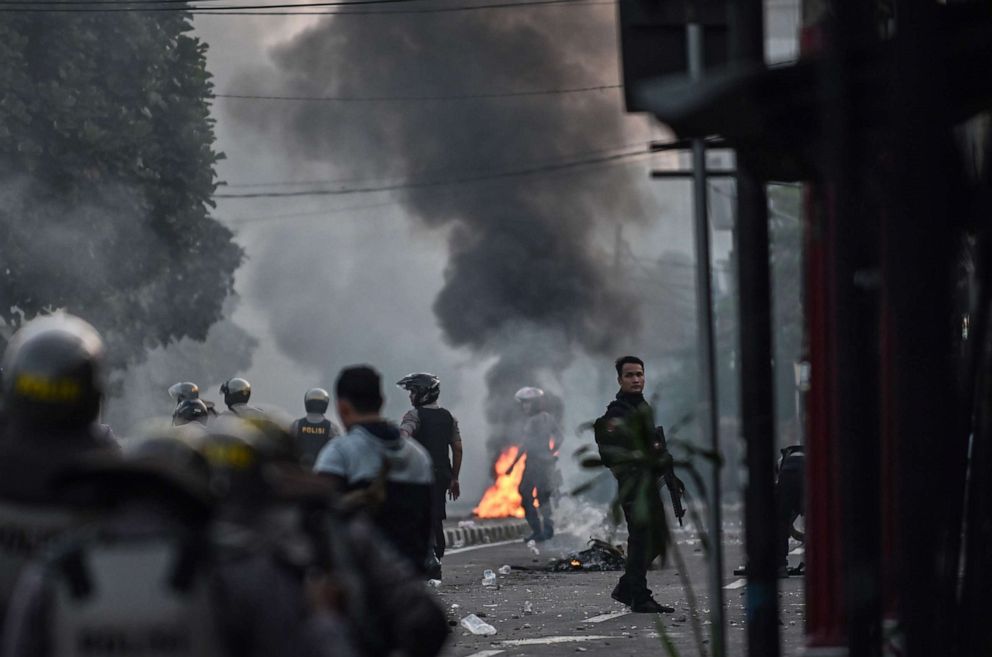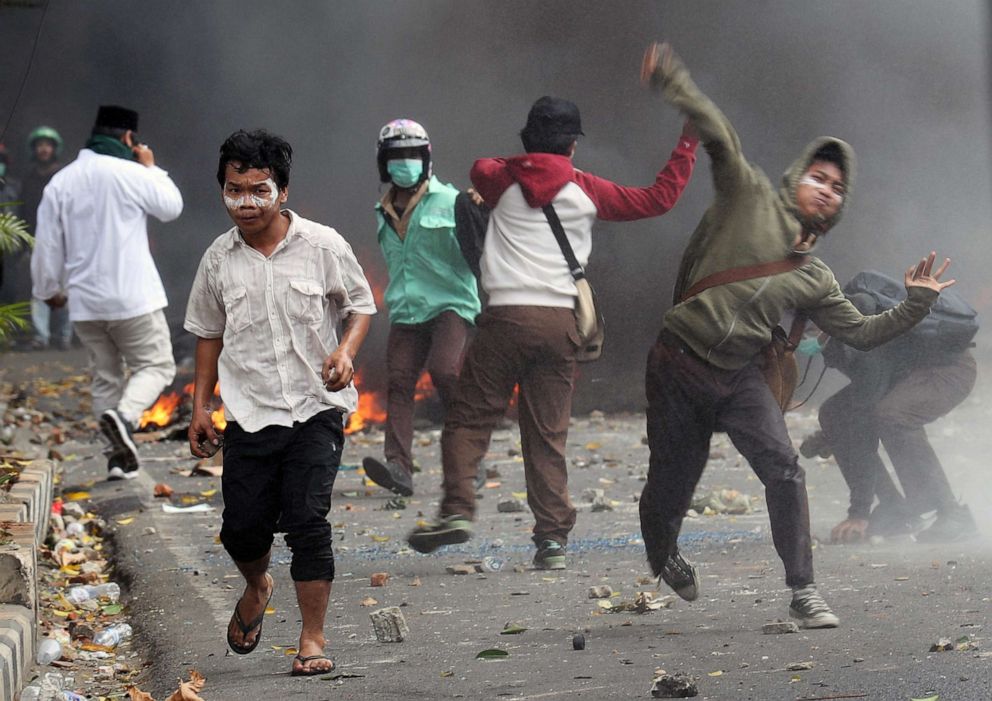Post-election riots in Jakarta leave 6 dead, hundreds injured
Authorities are suppressing some access to social media to quell unrest.
LONDON -- At least six people have died and 200 injured as riots in the Indonesian capital of Jakarta turned violent on Tuesday night.
Thousands of protesters supporting candidate Prabowo Subianto gathered in the city center following the announcement that incumbent President Joko Widodo won a decisive victory in the general election.
Crowds supporting Subianto echoed the losing candidate’s allegations of election fraud, gathering outside the Elections Supervisory Agency’s headquarters in the center of Jakarta.
On Tuesday evening, police moved in to disperse the crowd after the first clashes ensued, and protesters tried to force entry into the building.

Rioting continued throughout the night and into the early hours of the morning when police began firing tear gas into crowds. The movement turned violent, with protesters attempting to set fire to vehicles and dormitories in a police compound.
Officials have suggested the violence was instigated by a small group of provocateurs and that the majority of demonstrators were peaceful.
Muhammad Iqbal, a police spokesman, said that the “majority of protesters have come from outside Jakarta” and that the protests had been planned, and were not spontaneous.
Indonesia is suppressing access to social media in order to quell the violence, the country's security chief, Wiranto, said on Wednesday.


“To avoid provocations, the spread of fake news through the community, we will limit access to certain features on social media,” said Wiranto, who was once charged with crimes against humanity by the U.N. Transitional Administration in East Timor, but never tried.
Indonesia has a huge social media presence. Around 92% of the population actively uses Facebook, and 2% of all global public tweets are sent from Jakarta, making it Twitter’s No. 1 posting city in June 2012, according to research by Semiocast.
Indonesians are also heavy users of Blackberry devices and Whatsapp, with many citizens owning more than one mobile device.
Subianto is planning on taking his challenge to the Supreme Court. He previously lost the last general election in 2014 to Widodo -- an outcome that he also claimed was the result of election fraud and cheating.




